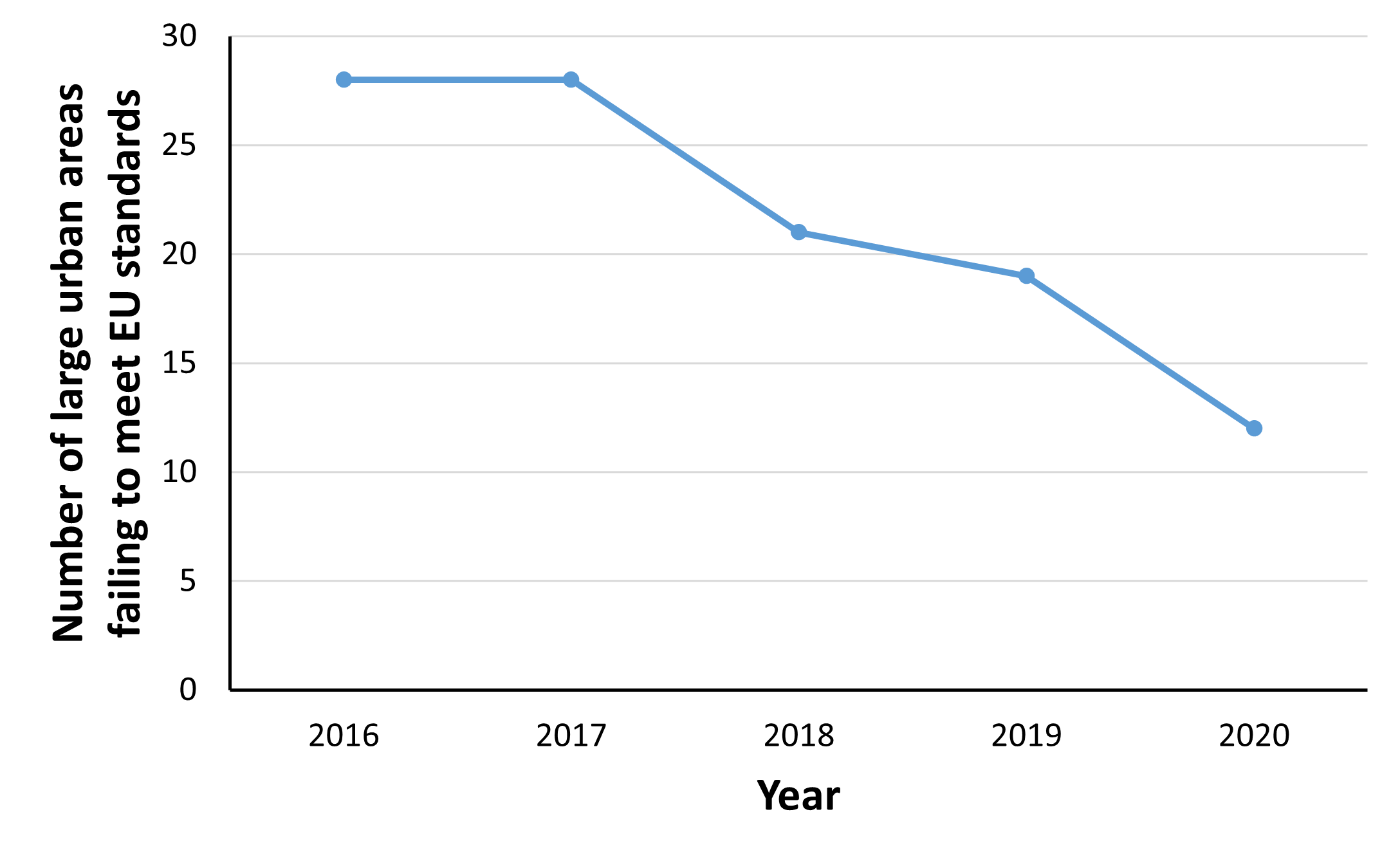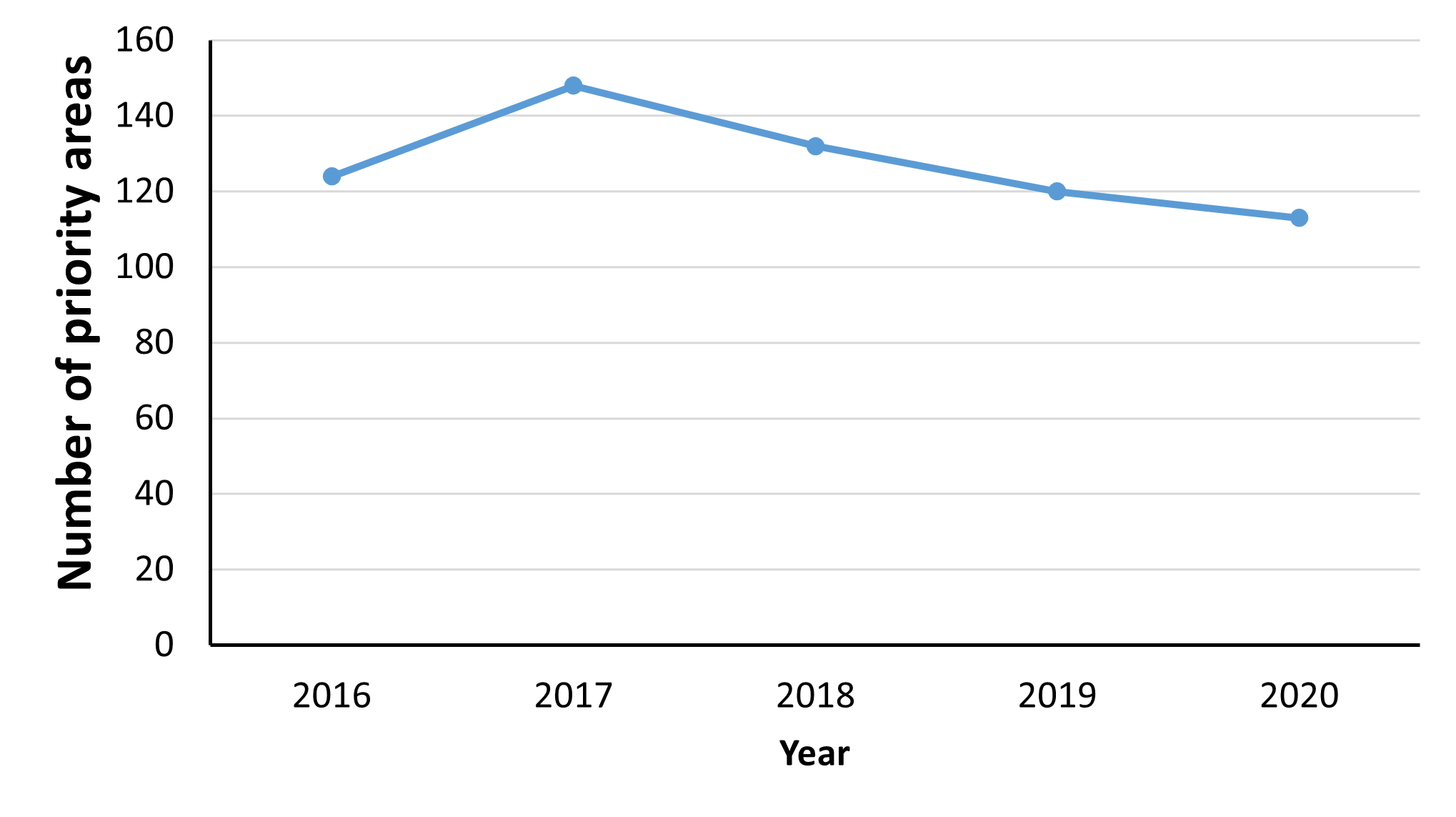| Current status | 2022 |  |
| Short term status | 2016 - 2022 |  |
| Long term status |  |
Click on the charts below in order to see the full resolution versions.
The EU Urban Waste Water Treatment Directive (91/271/EEC) has requirements for sewerage systems (or waste water collection systems) to be provided and sets deadlines for the provision of sewage treatment. The main requirements of the UWWTD are as follows:
- Scheduled provision of waste water collecting systems and treatment plants based on the size of the agglomeration and the type of water body to which the waste water is discharged (freshwater, estuarine or coastal, sensitive or non-sensitive).
- Monitoring by water services authorities (including frequency of monitoring) of discharges from waste water treatment plants.
In Ireland the Urban Waste Water Treatment Regulations, 2001 (S.I. No. 254 of 2001), as amended, gave effect to the UWWTD. The UWWTD also sets out criteria for identification of sensitive areas, such as freshwater bodies, estuaries and coastal waters which have received, or at risk of receiving, high concentrations of nutrients from waste water if action is not taken. Fifty-one water bodies are now designated as sensitive in Ireland.
The Environmental Protection Agency (EPA) is the environmental regulator responsible for the authorisation and enforcement of waste water discharges from water services authority waste water works. The purpose of the authorisation system is to prevent and reduce pollution by waste water discharges. All waste water discharge authorisations transferred from the local authorities to Irish Water on 1st January 2014 and Irish Water is now responsible for ensuring compliance with the requirements of the authorisations.
Responsibility for effluent sampling, analyses and reporting the results to the EPA was transferred to Irish Water on 1st January 2014. The EPA assesses the results reported on an annual basis against the quality standards and sampling frequencies specified in the Directive, and reports on the findings.
In 2022, 15 of 174 large urban areas failed to meet the European standards set out in the EU Urban Waste Water Treatment Directive. While the number of large urban areas which failed to meet EU standards has fallen in the last number of years (see image E.1.v._1) it is important to note that the waste water collected in these 15 sites account for over half (55%) of all waste water collected in all 173 large urban areas. Of particular concern is the failure of Ringsend treatment plant meeting the required as it treats waste water from a population equivalent of over 2 million. (https://www.epa.ie/our-services/compliance--enforcement/waste-water/urban-waste-water/urban-waste-water-priority-areas/). To address the deficiencies in meeting EU standards, a group of priority areas are identified each year in which improvements need to be made. Ninety-one ‘priority areas’ were identified in 2022 and they ranged in size from Ireland’s largest treatment plant (Ringsend, Co. Dublin) to smaller villages where waste water is impacting the local environment. The number of priority areas where treatment needs to improve has decreased from 148 in 2017 to 91 in 2022.
More information on wastewater treatment in Ireland can be found here:
https://www.epa.ie/publications/monitoring--assessment/waste-water/
Sensitive areas are listed in the Urban Waste Water Treatment (Amendment) Regulations 2010 S.I. No. 48 of 2010: www.irishstatutebook.ie/pdf/2010/en.si.2010.0048.pdf


